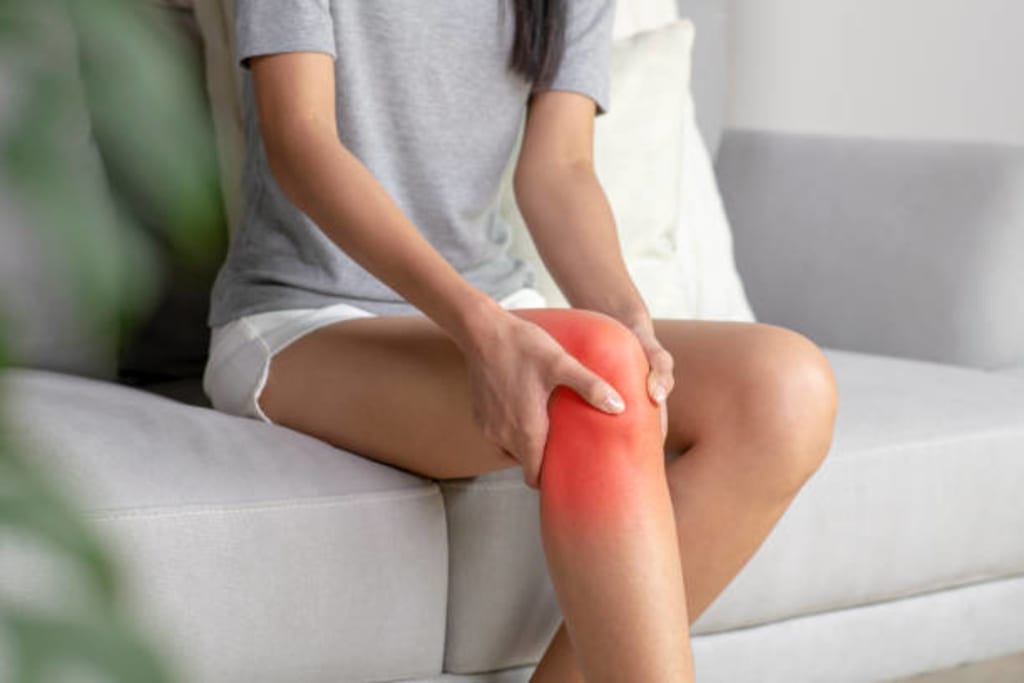5 Important Body Signs You Shouldn't Ignore.
Body Signals

Your body has a way of telling you when it's happy, when it's sad, or when it desperately needs your attention. If you notice any of these signs, you should talk to your doctor. Here are ten signs that your body is in trouble.
1. Swollen toes can be a sign of diabetes: which a dermatologist or rheumatologist can check for and treat. Studies in St. Louis showed that scratching delivered the chemical serotonin in the cerebrum, really improving the tingling sensation in mice.
2. Disdain being inside: Perhaps you very much like the great outdoors. However, assuming you're one of those individuals who always demands to open the windows in public transportation, you experience difficulty breathing inside, or you feel claustrophobic at work without a window open, you should have your heart tested to rule out the gamble of cardiovascular failure. Your thyroid could also need to be tested because hypothyroidism can cause something like this. If you feel stuffy all the time, you may be experiencing heat intolerance where your body doesn't regulate intensity properly. This can result from medication excess, caffeine use, thyroid issues, or some other condition like MS. Which doctor would it be a good idea for you to see? A cardiologist first to test your heart, then, follow up with an endocrinologist to check your thyroid. If neither of these turns up anything, consult your doctor to see if there may be some other reason.
3. You disdain open windows: This is basically the opposite of being inside. If you can't tolerate opening windows or you're cold even in the summer, you should have your thyroid looked at. Your body could need iodine, and this deficiency might lead to hypothyroidism. Cold intolerance can also result from anemia, lacking adequate iron in your diet, fibromyalgia, or vasoconstriction. Which specialist would it be advisable for you to see? An endocrinologist can test your thyroid. Assuming that checks out, consult your primary care doctor for other potential causes.
4. Unexpected onset of thievishness: Hold up there, Robin Hood! An abrupt obliviousness of the law and the wish to take something small, even if you can easily pay for it, could be the first sign of dementia, especially if you've been a good citizen for your entire life. Unfortunately, dementia and other such conditions can be very subtle, and it can be hard to admit that there may be a problem, let alone ask for help. Watch yourself carefully and pay attention to your family members, especially the elderly. Which specialist would it be advisable for you to see? Since the issue might be physical or mental, consult with a range of social workers, make an appointment with a neurologist to check for signs of dementia, and see a psychologist or psychiatrist to learn some cognitive behavioral techniques to deal with any sudden urges to take things. If the specialists do identify the onset of dementia, follow their instructions to minimize its impact. Make sure you ask for help even if you think you don't need it.
5. Changes in your nails: It's those feet again, warning us of impending trouble, but this time your hands could help too. If you notice your nails changing shape, for example, becoming thicker and wider, this might indicate that you have lung or heart issues. This condition called nail clubbing isn't exactly a disease; it's a symptom of an underlying process in your body that can be caused by many diseases, mostly of the lungs or heart, but sometimes of the intestines, liver, or thyroid. Which specialists would it be advisable for you to see? A cardiologist for a full physical workup and circle back to your primary care doctor to identify other potential causes. Nail clubbing is certainly not normal and could mean several serious issues. Here's some additional trivia: The Greek doctor Hippocrates, who is often called the father of medicine, is frequently credited with being the first to identify and record nail clubbing as a sign of an underlying disease, which he did almost 2,500 years ago. As such, the condition is sometimes referred to as Hippocratic fingers. We bet he's excited.
Dear readers, thank you for embarking on this journey of revelation with me, as a health specialist I reveal mysteries and insights about health in my articles. Kindly, check out for more of my articles, subscribe so yhat you can get notifications when i publish new articles and you can send a gift to support my adventures.





Comments
There are no comments for this story
Be the first to respond and start the conversation.